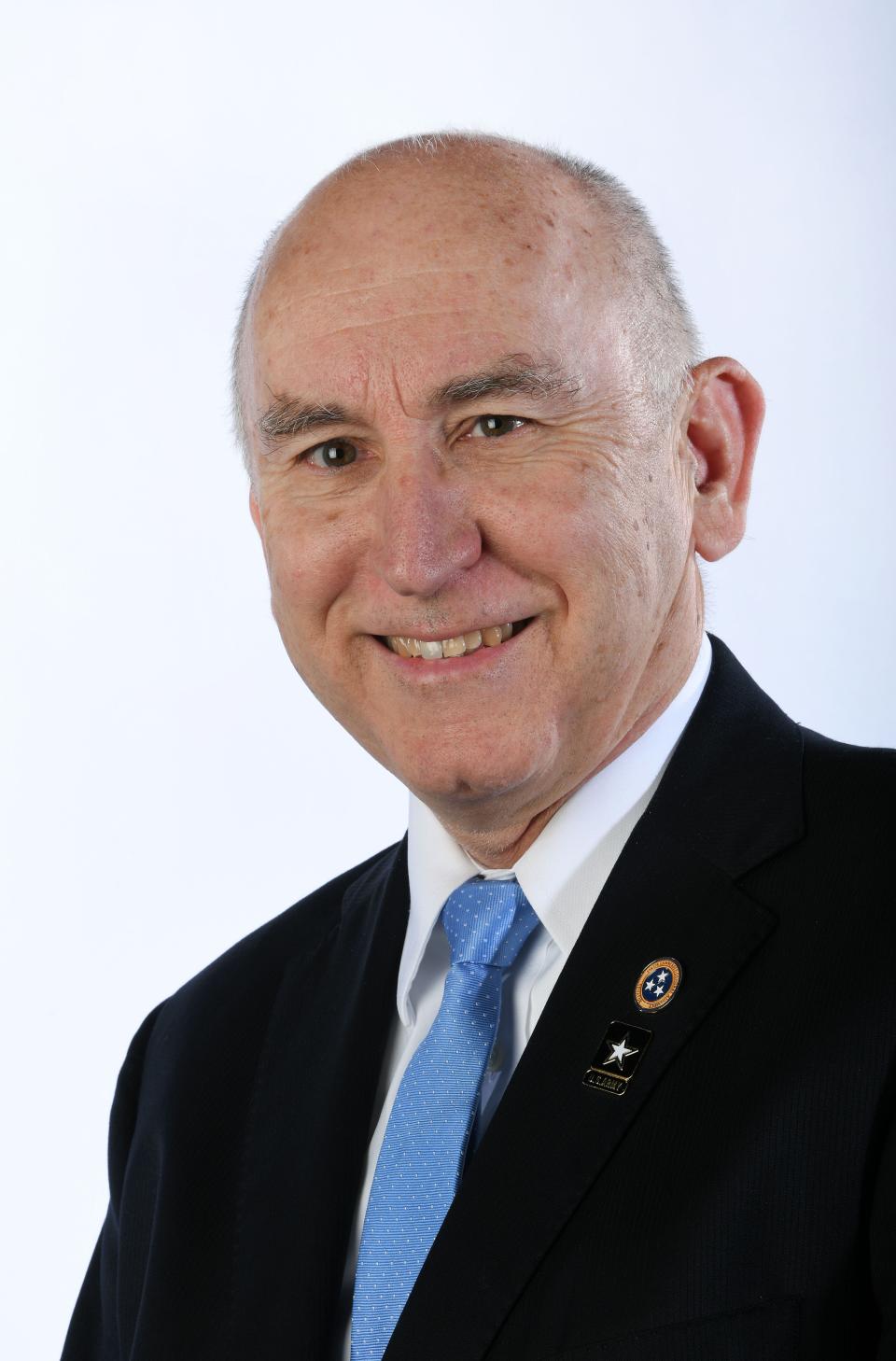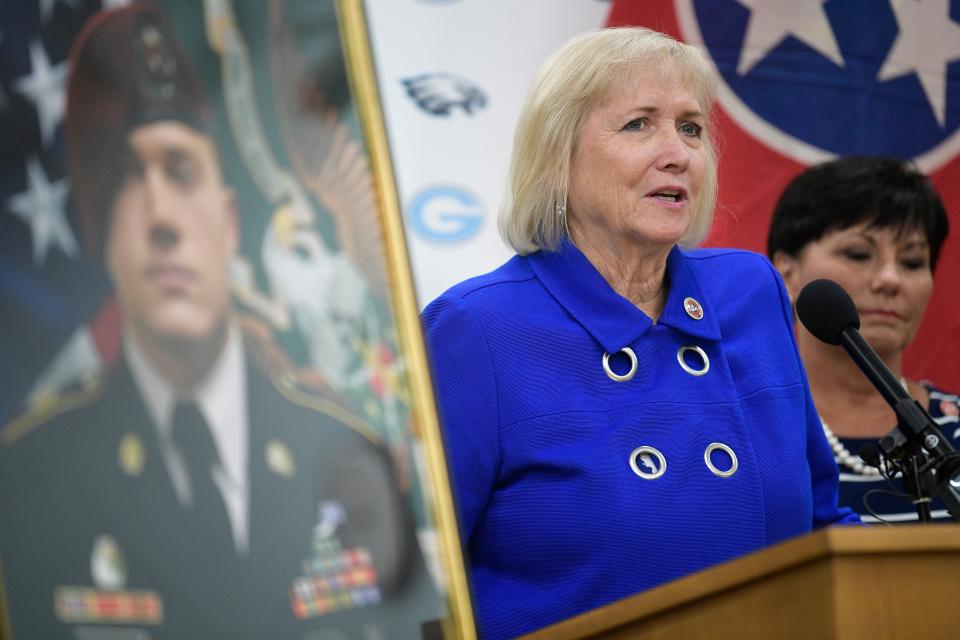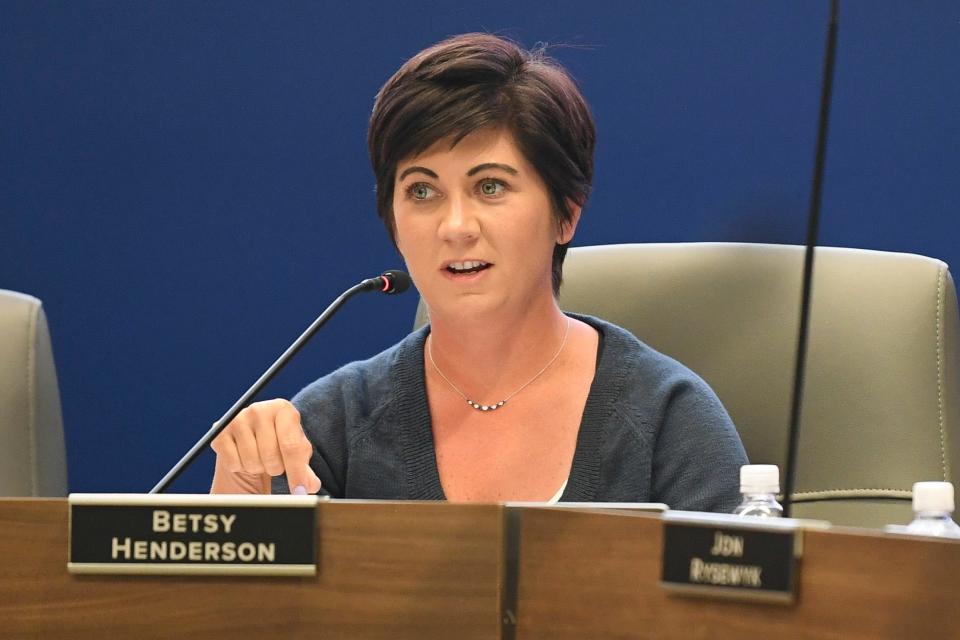What Knox County leaders say about dramatically expanding school vouchers
- Oops!Something went wrong.Please try again later.
Gov. Bill Lee's latest proposal to bring vouchers to schools statewide has received mixed reactions.
School vouchers can be used by families to pay for private schools, including religious institutions and for those who home school.
Knox County has 1,714 homeschool students enrolled this year in the district, according to Knox County Schools spokeswoman Carly Harrington.
Lee kicked off his school choice proposal Nov. 28 with a press conference in Nashville alongside Arkansas Gov. Sarah Huckabee Sanders.
"There is an absolute conservative education revolution in our country,” said Sanders, who led her state to adopt a universal school choice policy.
Lee, who has long advocated for offering families more school options, said the program is aimed at empowering parents to find the best school to fit their child's educational needs.
“Where we seem to fail is when we require a student to go to a failing school just because of their geographic location," Lt. Gov. Randy McNally of Oak Ridge said at the press conference.
What do Knox County's state senators think of school vouchers?
Republican state Sen. Richard Briggs of Knoxville remains a vocal opponent of vouchers.
Chief among his concerns is what types of private schools will receive state funds.
"We have an Islamic school in Knoxville. Some of the young children that will want vouchers may go there," Briggs said. "Are we using taxpayer money to send kids to Islamic schools? ... We have many graduate students from Pakistan, or from the Middle East who may have kids here. We shouldn't have taxpayer money funneling to Islamic education.
"We have to come to a consensus on what are American values and then teach those values to kids," Briggs said. "Are they going to teach American civics in private schools?"

He stressed the importance of ensuring children of immigrants get exposure to the public education system.
Briggs said Knox County already has a"liberal" transfer policy for those who want their child to attend a different school.
"I would rather bring our poor-performing schools to perform better," he said.
Lack of oversight on policies and testing worries Briggs, too.
"We have talked about banning books that are not age appropriate," Briggs said. "We don't allow flying of the rainbow flag ... we don't discuss children that may be confused about their gender. Are those same rules going to apply to private schools? Are we going to have any oversight?"
State Sen. Becky Massey of Knoxville hasn't decided what her vote may be.
"I'll be doing my due diligence," Massey said. "In the past, I've not voted for vouchers. I've not necessarily voted against them. But this one, it may have a little bit different flavor to it. But I'm waiting to see what the bill language looks like."

What do Knox County school board members think of vouchers?
Knox County School Board Chair Betsy Henderson supports vouchers.
"I firmly believe that every parent should have the right to choose the school that’s right for their child – regardless of zip code or income," Henderson said in a statement to Knox News. "I hope this legislation will expand school choice so that more families can ensure their child is getting an excellent education."
Addressing critics' concern that vouchers pull funding away from public schools, Henderson said that since she was elected three years ago, "KCS has had historic increases in funding."

"This is an old scare tactic, which I’m confident won’t be an issue. We should be in the business of choice for parents and success for students," she said.
Increasing choice for parents will force public schools to be more competitive, she said.
School board members Jennifer Owen, an independent, and Katherine Bike, a Democrat, said they do not support vouchers.
"We're using public funds to fund private schools," Owen said. "It's definitely crossing the line between church and state.
"Taxpayers want their taxes to go to public services, not to be funneled into private institutions they have no oversight on."
With funds directed away from public schools, they worry Knox County Schools students will suffer.
"The fixed costs remain the same. They're not going to go down," Owen said. "Public funds should be used for the good of the society."
"If our public schools were fully funded, we would not need to fund vouchers for private schools," Bike said in a statement to Knox News. "To date, our public schools in Tennessee have never been fully funded."
Daniel Watson, an independent, said while he supports the philosophy of offering parents a choice, he has concerns vouchers will lead to underfunding public schools.
Tennessee GOP lawmakers are also considering rejecting nearly $2 billion in federal education funding every year, and Watson said he's concerned about the big picture for students.
"What happens 10 years from now, right when we're still trying to fund things that the federal government would have funded for us," he said.
With potentially having charter schools and vouchers, Watson said, "something always gets the shortest end of the stick and my concern is that that would be the public education system eventually."
What does the Knox County Schools superintendent say about vouchers?
In a statement to Knox News, Superintendent Jon Rysewyk was diplomatic: "We are committed to providing a high-quality education for all students and we feel confident that our families recognize this commitment and will continue to choose Knox County Schools."
How is the expansion different from Tennessee's existing voucher program?
Earlier this year, a proposal made its way through the Tennessee Legislature to bring vouchers to Knox County, but it was shot down by Knox County's state senators.
Tennessee’s Education Savings Accounts program offers low- and middle-income students in Davidson, Hamilton and Shelby counties grants of about $9,000 each to attend state-approved private and parochial schools. Those students are required to take the Tennessee Comprehensive Assessment Program test each year from grades 3 through 12.
If approved, how much money would a student receive?
Lee’s proposed Education Freedom Scholarship Act would offer 20,000 Tennessee students $7,075 each to attend a private school of their choice beginning in the 2024-25 school year. Grants would be allowed to be used at any private school, and most home schools.
What will it cost taxpayers?
A formal fiscal analysis is not available. Based on the number of students targeted, the program would cost the state $141.5 million if all slots were filled, plus administrative costs.
It is not clear where in the state budget the funding would come from.
What happens next?
Lee’s announcement this week was the first step in a long legislative process that will pick up when lawmakers return to the state Capitol in January. Once legislation is filed, it will need to pass at least two Senate committees and five House committees before going to both chamber floors for a vote.
Are other states doing this?
Yes. Several states, including Arkansas, Arizona, Iowa, West Virginia and Utah recently implemented universal school choice laws that offer families state-funded scholarships to pay for tuition and other expenses at nonpublic schools, regardless of their income or residency.
The Tennessean contributed to this story.
Areena Arora, data and investigative reporter for Knox News, can be reached by email at areena.arora@knoxnews.com. Follow her on X, formerly known as Twitter, @AreenaArora.
Support our newsroom's exclusive, in-depth local coverage by subscribing at knoxnews.com/subscribe.
This article originally appeared on Knoxville News Sentinel: Tennessee school vouchers: What Knox County leaders think

